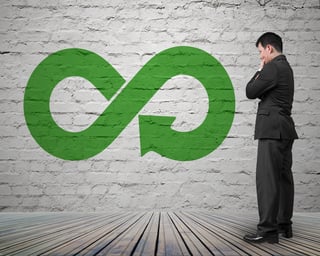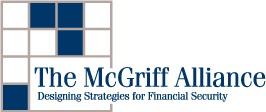 It's been called the path to true financial freedom. It allows you to be independent of government intervention. It's all about being your own "bank."
It's been called the path to true financial freedom. It allows you to be independent of government intervention. It's all about being your own "bank."
It is infinite banking, and it's something you need to know about.
"What is infinite banking?"
"What is infinite banking?" That's a question most Americans simply can't answer, in part because the concept is relatively new but mostly because the country has been conditioned to believe that people must rely on banks for their lending needs.
Infinite banking was developed by R. Nelson Nash. Nash was a pilot before becoming a life insurance agent. During his time working in the life insurance industry, he figured out how his clients could use the products he was selling to take control of their financial lives by eschewing banks and using their own money to fund their dreams.
And it's a concept that is relatively easy for the average person to grasp.
In his book "Becoming Your Own Banker," Nash says that infinite banking "is designed for the layman, not the professional financial consultant or life insurance agent."
However, he writes, "the thesis is not generally understood at all. Therefore, it has not been taught by the life insurance industry nor by academia."
If it had been, Nash surmises that "life would have been much simpler and much more profitable."
Infinite banking involves using whole life insurance as your personal bank--and it's not complicated.
How infinite banking works
Most people who pay into a whole life insurance policy are probably focused on the death payout, and that's fine. But if you really want to maximize the potential that a whole life insurance policy offers, you focus on leveraging the policy's cash value.
When you make payments into your whole value life insurance policy, you're growing its equity, or cash value, the same way you do when you make your monthly mortgage payments.
Over time, the policy's cash value grows because you're adding to it and it is earning a rate of return. Plus, there are often guaranteed minimums you'll earn that are spelled out in the policy.
Here's the exciting part: You can access your cash value any time you want to do so. Accessing, or "borrowing against" your cash value, allows you to pay for things you need, such as investment properties, your business, medical expenses or any other purpose.
And the best part is that even when you are accessing the cash value equity, the compounding interest of the policy continues.
See? You are borrowing your own money. And even though there is a loan interest rate associated with borrowing against your cash value, it still makes a lot of financial sense.
Why infinite banking makes good financial sense
Few things in life are free, and this is especially true when it comes to taking out a loan. Your job, as someone working to secure a bright financial future for your family, is to minimize the costs associated with borrowing money.
And that's where being your own banker gives you an edge.
Imagine if you took out a $30,000 loan and financed it for 60 months at a 6 percent annual percentage rate (APR). Over the life of the loan, you would pay $4,799 in interest.
However, if you borrowed $30,000 against your cash value and paid the same 6 percent APR, you'd come out ahead--because the $30,000 in cash value you accessed would still be earning interest (and compounded interest at that).
This means you'd actually wind up with $5,667 more than when you started.
That's a good deal, and one every American should consider.






Leave a comment